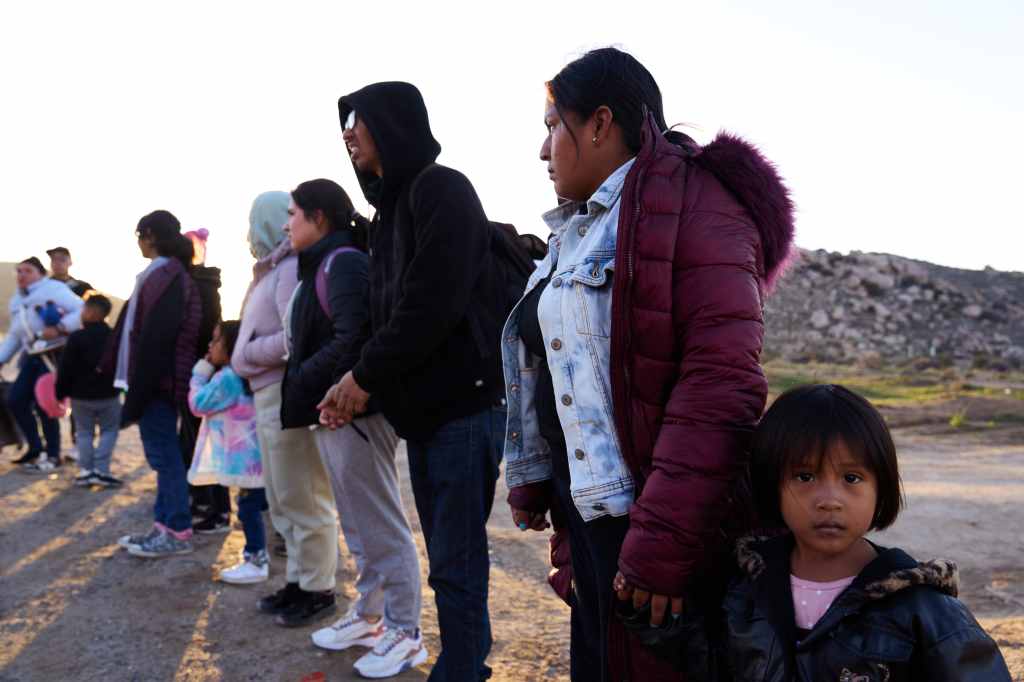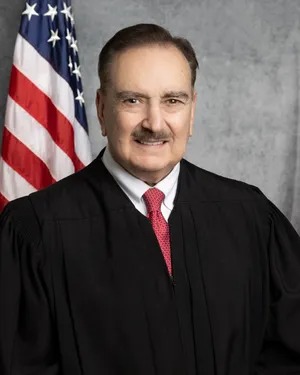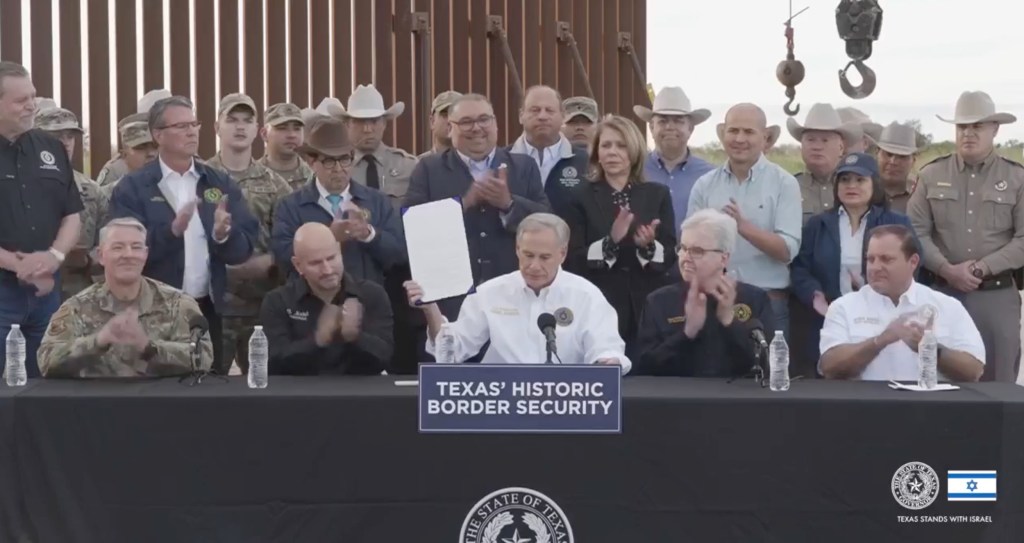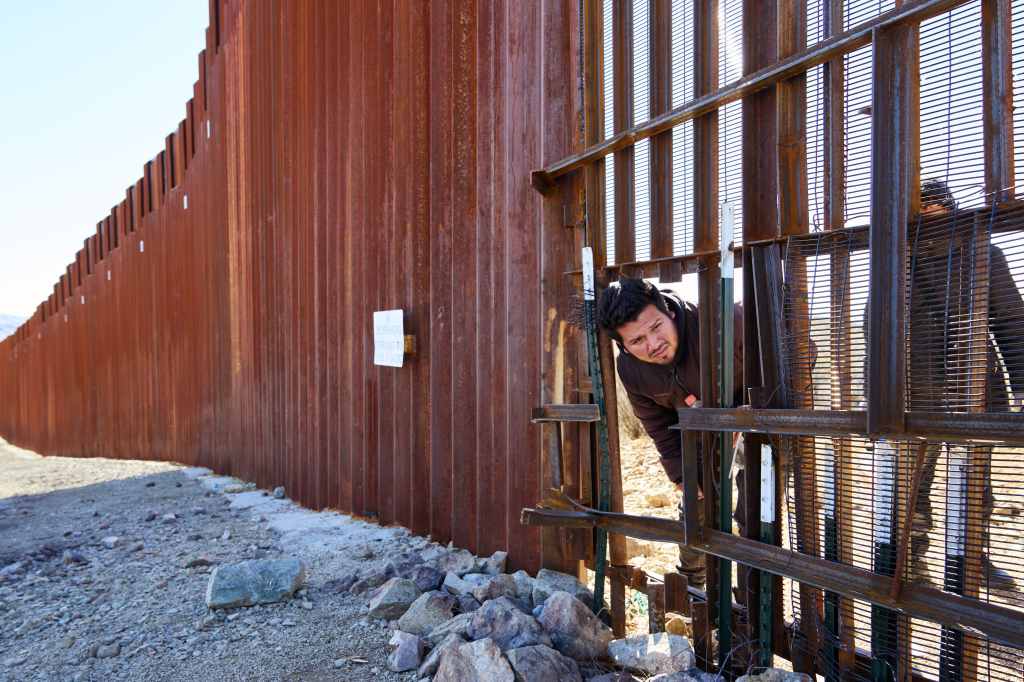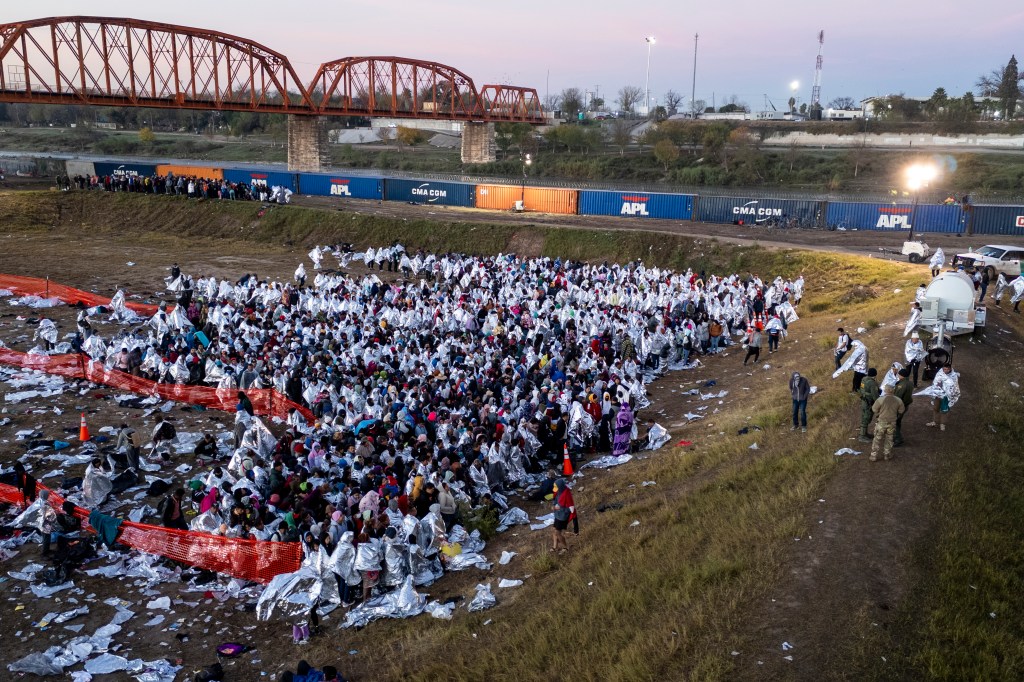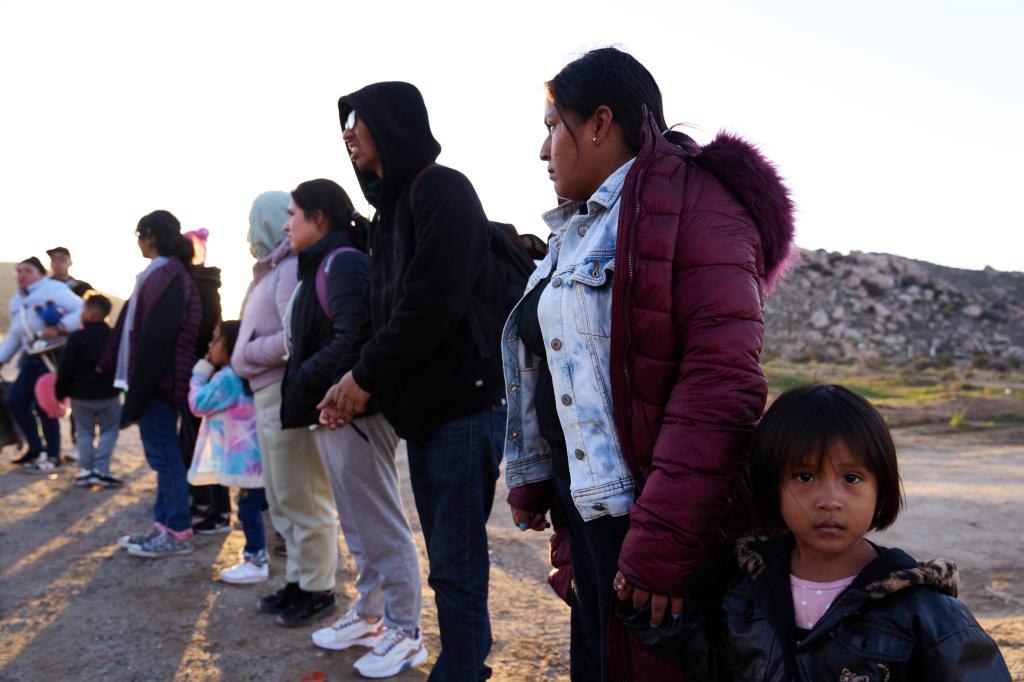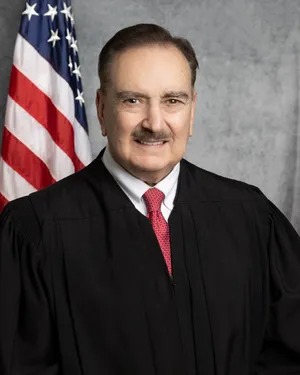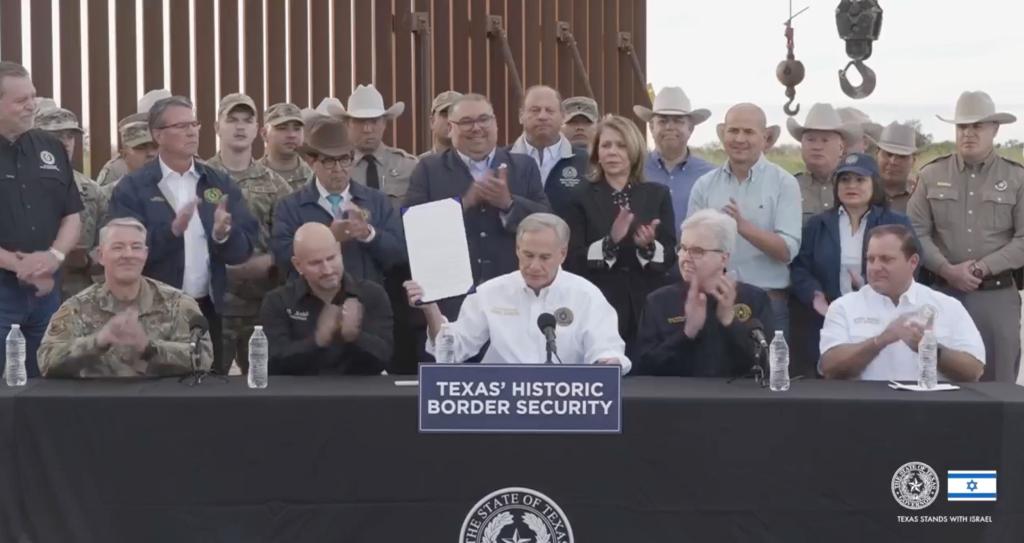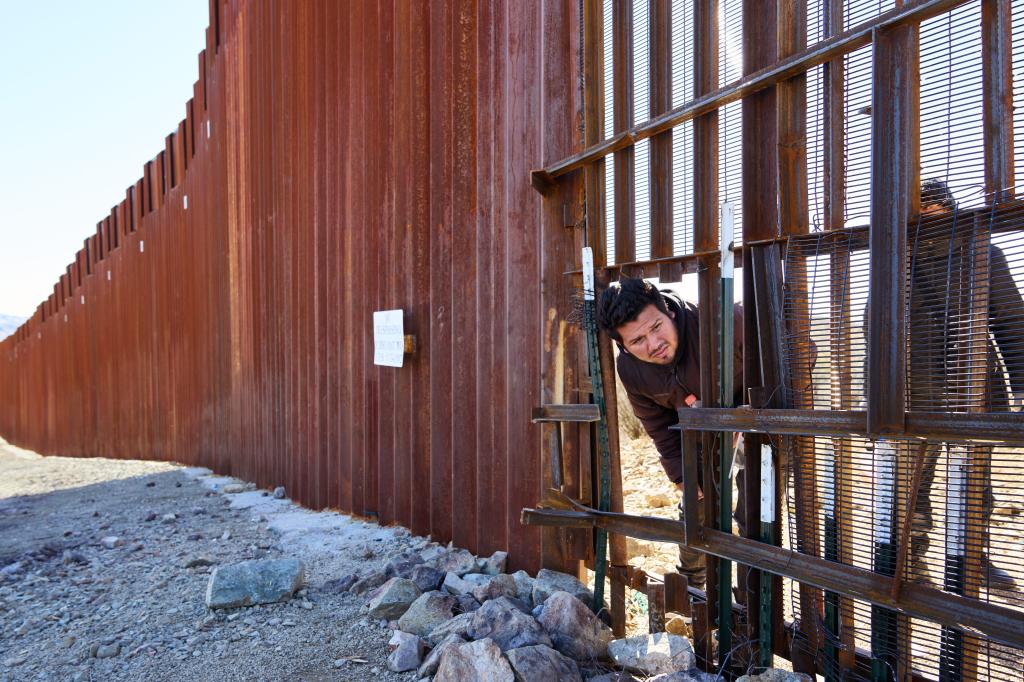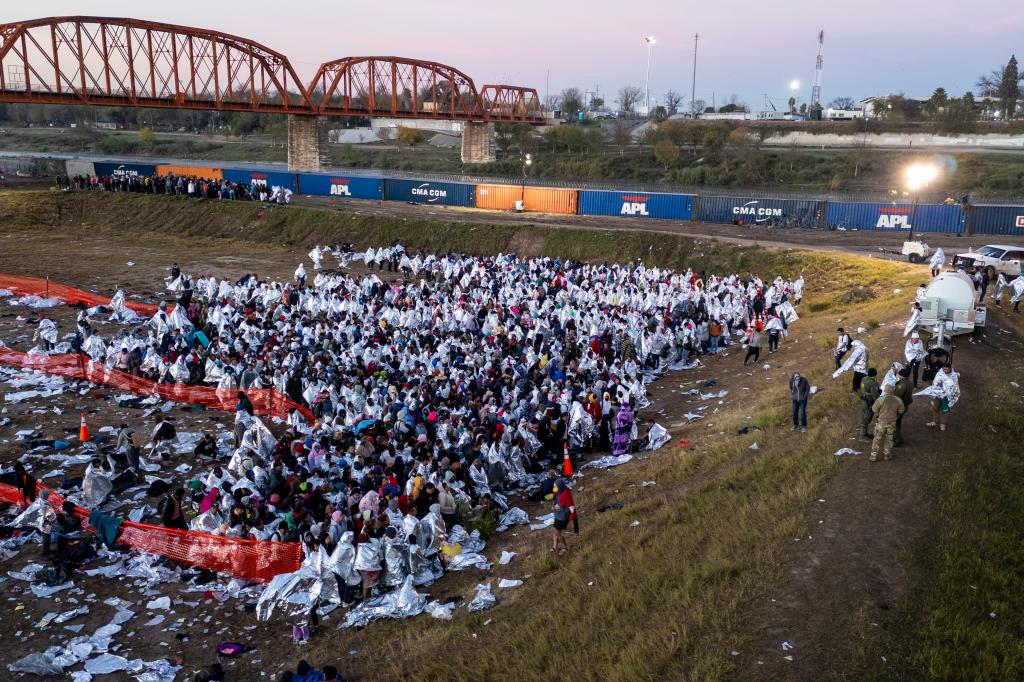Supreme Court temporarily blocks Texas law that allows police to arrest migrants
Texas’ new state law allowing police officers to arrest suspected illegal migrants is headed to the Supreme Court in a legal showdown over the federal government’s authority over immigration.
The high court on Monday blocked Texas’ immigration law from going into effect until March 13 and asked the state to respond by March 11.
The law has taken a number of twists and turns in recent days, firstly being blocked by a federal court, a ruling which was overturned on appeal at the weekend, paving the way for it to go into effect March 10.
The Biden administration filed an appeal Monday asking the Supreme Court to hear the case. They will have to decide if it stands or is struck down.
Texas Gov. Greg Abbott, who signed the measure into law in December, had welcomed the overturning by the appeals court.
“Law enforcement officers in Texas are now authorized to arrest & jail any illegal immigrants crossing the border,” Abbott wrote on X on Monday, before adding: “Unless the Supreme Court intervenes by March 9.”
The law — known as SB4 — authorizes local police and the Texas Department of Public Safety to detain anyone suspected of entering the country illegally — and if they are found to have done so they will be handed state charges which give effectively the person a choice of prison or voluntarily leaving the country.
Opposition to the law from the Department of Justice and civil rights groups claim border matters fall under federal jurisdiction and are not for individual states to decide.
In his ruling blocking the law, Judge David Ezra agreed it interferes with the federal government’s powers under the US Constitution to enforce immigration laws and the ability of migrants to apply for asylum “to the detriment of the United States’ foreign relations and treaty obligations.”
Ezra also rejected Abbott’s oft-repeated claim that the growing number of migrants crossing the border amounts to an “invasion.”
“Even accepting that some small number of immigrants do traffic drugs or have cartel affiliations, Texas cannot genuinely maintain that noncitizens crossing the border are an organized military force aimed at conquest or plunder,” Ezra’s ruling read.
Texas had immediately appealed the ruling, with Abbott fuming: “We will not back down in our fight to protect our state — and our nation — from President Biden’s border crisis.”
The Supreme Court has previously heard a similar appeal against an Arizona law in 2012, which it eventually struck down, siding with the argument that all immigration matters are the responsibility of the federal government.
The court rulings comes at a crucial time, with the number of migrants living in the US expected to surge to 8 million by the end of September — an eye-watering 167% increase over five years.









